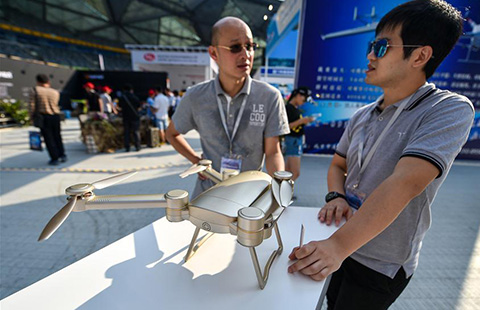Inclusive growth needs inclusive cooperation, says Chinese banker
(Xinhua) Updated: 2015-11-18 09:58MANILA - As the 23rd Asia-Pacific Economic Cooperation (APEC) Economic Leaders' Meeting kicks off Wednesday, a Chinese banker pointed out that inclusive growth needed inclusive cooperation which would lead to inclusive fruition.
Wang Hongzhang, chairman of the China Construction Bank (CCB), told reporters on Tuesday that to achieve inclusive growth, relevant economies should give up their original practices and reach more consensus so as to facilitate connectivity in the region.
Calling connectivity an expression of inclusive economy, he said that frameworks and financing networks were increasingly established since APEC economies, regional developmental organizations and commercial banks were seeking to enhance their cooperation.
However, the Chinese banker believed regional financial institutions were facing challenges of improving connectivity as supervision and standardization over finance lacked transparency and deficit in some regional economies and different standards in the economies also constrained the free flow of capital.
Meanwhile, trade barriers remained among member economies and the world economy was still experiencing downturn which also prompted financial risks, especially for the international banks, said Wang.
Therefore, it was necessary to implement moves raised in the 22nd APEC Economic Leaders' Declaration -- the Beijing Agenda for an Integrated, Innovative and Interconnected Asia-Pacific, and the Beijing Roadmap for APEC's Contribution to the Realization of the Free Trade Area of the Asia-Pacific, according to Wang.
China has proposed the "Belt and Road" initiative and launched a new multilateral development bank -- Asian Infrastructure Investment Bank (AIIB) -- to help boost development of regional connectivity.
The initiative of the Silk Road Economic Belt and the 21st Century Maritime Silk Road, proposed by Chinese President Xi Jinping in 2013, is aimed at reviving the ancient trade routes that span Asia, Africa and Europe.
He noted that more and more regional economies were increasingly cognizant and supportive of the Chinese initiatives. "Chinese enterprises start to actively engage in cooperation with APEC economies in construction of airports, bullet train services, roads and ports."
"The 'Belt and Road' initiative not only serves China's national strategy, but also plays a role in world trade by improving transportation construction, facilitating trade and enhancing people-to-people exchanges," said the banker.
He said the establishment of the AIIB was hailed by the international community as they all noticed that infrastructure deficit remained huge worldwide, adding that, with more stimulus measures, it was also necessary to involve private sectors in infrastructure investment.
On the "go global" strategy of Chinese banks, Wang said they still remained inexperienced in coping with international financial crisis, but he hoped the banks could carry out strategies based on sufficient assessment.
- Mercedes-Benz looks to finish the year strong
- Local footprint for globally awaited model
- Mercedes-Benz launches All New GLC SUV
- Carmaker debuts QX30 SUV model simultaneously in US and China
- Infiniti sales growing in sluggish market
- Innovative, small businesses get multibillion-dollar tax cuts in China
- China EximBank to finance China Railway's global projects
- China to reinforce IPR protection: vice premier
















